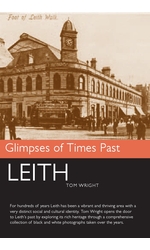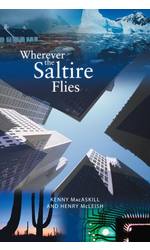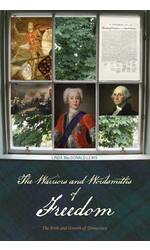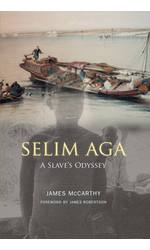- Home >
- Midpoint Publishers >
- Luath Press Ltd >
- HISTORY >
- Europe/ Great Britain >
- Scotland's Waterloo
Scotland's Waterloo
Request Sample
Publisher: Luath Press Ltd
The Scots triumphed at Waterloo – as painters, subjects for painters, diarists, writers and poets. Scotland's Waterloo showcases the different ways that illustrious Scots documented and responded to the battle.
Owen Dudley Edwards starts with the painters and their patrons, before moving on to the fascinating eyewitness accounts of Scottish soldiers. He finally introduces the voices of some more famous Scots who experienced the battle first-hand, including Sir Walter Scott, Lord Byron, Robert Louis Stevenson, Thomas Babington Macaulay, Dr Robert Knox and Arthur Conan Doyle.
About Owen Dudley Edwards
Owen Dudley Edwards is Hon. Fellow of the School of History, Classics and Archaeology, at the University of Edinburgh where he taught History from 1968, having been born in Ireland and studied in the USA. His wife, Bonnie, is American and his three children are Scots. His most recent major monograph is British Children’s Fiction in the Second World War, his most recent collaboration Tartan Pimps, and he has edited several books including A Claim of Right for Scotland.
detail
| Binding | EAN | ISBN-10 | Pub Date | PAGES | Language | Size | Price |
|---|---|---|---|---|---|---|---|
| Paperback | 9781910745168 | 1910745162 | 2017-02-28 | 192 | 0.00 x 5.50 x 8.25 in | $18.95 | |
| E-Book | 9781910324523 | 1910324523 | 2015-07-31 | 0 | 0.00 x 0.00 x 0.00 in | $18.95 |
Publicity
Connect
Multimedia
Contributor Platforms
Recent Press
Promo Quotes
Events
Book Signings and Tour Cities
Disarming the Nuclear Argument
by Wallis, Timmon MilneNuclear weapons are too important to be left to politicians and generals. They need to be discussed in the pub, at the school gates and over the kitchen sink so that people are aware of the issues involved and have had the opportunity to think them through...
read moreMcSmörgåsbord
byThe Nordic countries have a veritable smörgåsbord of relationships with the European Union, from in to out to somewhere in between. So, what does that mean for Scotland? Well, somewhere in this incredible diversity of relationships with Europe is an arrangement that’s likely to be good for Scotland too – strangely enough, maybe more than one...
read moreMankind's Great Divides
by Mitchell, George R.Borders. Bridges. Barbed wire. George Mitchell details his visits to some of the world’s most disputed and undefined places. He explores current and historical conflicts and the reverberations which are manifest in the walls and fences; the huge physical divides that are only growing taller with the increasing mental divides of the people on either side...
read moreWho Belongs to Glasgow [new edition]
by Edward, MaryA landmark publication in 1993, this study of Glasgow immigration was used in all schools throughout the city. Now thoroughly revised and updated with a new chapter, this timely publication is an essential insight into the historical background of Glasgow's migrant groups and their interactions with the indigenous population.
read moreThe Truth About Trident
by Wallis, Timmon MilneThe issue of Trident is too important to be left to politicians and generals. It needs to be discussed in the pub, at the school gates and over the kitchen sink so that people are aware of the issues involved and have had the opportunity to think them through...
read moreEdinburgh Old Town
by McHardy, StuartJohn Fee was a true storytelling artist, painting verbal pictures, setting off on digressions that turned out not to be digressions, moving effortlessly into a song or poem. He has uncovered little-known aspects of the Royal Mile along with long-forgotten characters who spring back to life through the storyteller’s art...
read moreDoing my Bit for Ireland
by Skinnider, MargaretDoing my Bit for Ireland is Margaret Skinnider’s autobiography, focusing mostly on the time period shortly before and after the 1916 Easter Rising in Ireland. In it, she details her activities and motivations, along with her observations of the quality and nature of Irish life under English rule...
read moreThe Unbroken Tradition
by Connolly, NoraThis is the a publication of The Unbroken Tradition by activist Nora Connolly, first published in 1918.Connolly shares her first-hand experience of the events leading up to, during and after the Easter Week Irish revolution in 1916.Connolly shared the Republican and Socialist visions of her father, James Connolly, and was at the heart of the rebellion that aimed to free Ireland...
read moreThe Tycoon and the Bard
by Cairney, JohnAndrew Carnegie: self-made Scottish-American steel millionaire and international philanthropist, remembered through trusts, charities and public buildings on both sides of the Atlantic.Robert Burns: Scotland’s greatest poet and most famous philanderer; an inspiration for future liberal politicians and an almost mythical cultural icon...
read moreScotland and the Easter Rising
byThe story of the Rising is still being told, and in these pages the reader will find much to ponder, much to discuss, and much to disagree with. From the Introduction by Kirsty Lusk and Willy MaleyOn Easter Monday 1916, leaders of a rebellion against British rule over Ireland proclaimed the establishment of an Irish Republic...
read moreNotes of a Newsman: Witness to a Changing Scotland
by MacKay, JohnFrom being in a room with a grizzly bear to trying to calm an irate – and topless – Alex Salmond, MacKay’s career has been nothing if not varied. Using archive scripts, interview transcripts, recollections and personal diaries, he tells the story of one of the most tumultuous periods in Scotland’s peacetime history.
read moreA Dirty Swindle
by Stephen, WalterWalter Stephen provides an uninhibited look at the misery and toil of World War I through a collection of twelve stories. Providing a Scottish perspective, he takes a look at reports from home and abroad with scepticism, delving deeper to unveil the unencumbered truth...
read moreBruce, Meg and Me
by Ewing, GregorBruce: Robert the Bruce, mediaeval Scottish nobleman who revolted against English rule, King of Scots who claimed the crown in 1306 by stabbing his main rival, fugitive from Edward I’s armies in the Hebrides and Ireland before returning to wage a successful guerrilla war against the English oppressors...
read moreScotland's Waterloo
by Edwards, Owen DudleyThe Scots triumphed at Waterloo – as painters, subjects for painters, diarists, writers and poets. Scotland's Waterloo showcases the different ways that illustrious Scots documented and responded to the battle.Owen Dudley Edwards starts with the painters and their patrons, before moving on to the fascinating eyewitness accounts of Scottish soldiers...
read moreScotland's Future History
by McHardy, StuartStuart McHardy takes a revolutionary approach to interpreting the past. He shows that future generations will understand Scottish history in a fundamentally different light thanks to recent and future developments in archaeology, folklore and oral history...
read moreLeith
by Wright, TomThe Leith area possesses a highly distinct cultural and social identity, with a contentious history to its relationship with Edinburgh. Tom Wright opens the door to Leith's past by exploring its rich heritage through a comprehensive collection of black and white photographs taken over time. Accompanied by quirky and insightful text which brings the era to life.
read moreWalking Through Glasgow's Industrial Past
by Mitchell, Ian R.Walking Through Glasgow's Industrial Past sets out to retrieve the hidden architectural, cultural and historical riches of some of Glasgow's industrial and working-class districts. Many who enjoy the fruits of Glasgow's recent gentrification may be surprised and delighted by the gems which Ian Mitchell has uncovered beyond the usual haunts.
read moreCalton Hill
by McHardy, StuartLord Cockburn, Victorian defender of Edinburgh's beauties, describes Calton Hill as 'the Glory of Edinburgh'. 'It presents us,' enthused Cockburn,'with the finest prospects both of its vicinity and the city-- it is adorned by beautiful buildings dedicated to science and to the memory of distinguished men...
read moreWomen of Moray
by Bennett, SusanThe stories of around 70 women associated with the Moray area, this book provides a unique glimpse into history, looking beyond the male-dominated surface to a wealth of important and extraordinary female achievement....
read moreWherever the Saltire Flies
by McLeish, HenryConsidering the history of these organisations, their members and influence in their respective locations, they note the changing nature of Scottish culture as it flourishes amongst international diversity. Written as a series of specially conducted interviews with each chapter, a new location and new organisation Wherever the Saltire Flies investigates many and varied personalities.
read moreThe Whisky River
by Laing, RobinWhich river has half the distilleries in Scotland found along its length and in its surrounding glens? Why were monks at the forefront of developing whisky? Which Speyside distillery has an annual migration of toads? How did Glenrothes distillery expel its ghost? Robin Laing - singer-songwriter, author of The Whisky Muse, and chair of the Scotch Malt Whisky Society's Tasting Panel - set out to...
read moreThe Warriors and Wordsmiths of Freedom
by MacDonald-Lewis, LindaDid you know that the Declaration of Independence was based on a Scottish declaration of independence from the English from nearly 700 years ago? This book will take you from the days of William 'Braveheart' Wallace and Robert the Bruce during the Wars of Independence in Scotland, to the days when Scottish and Irish people emigrated to the American Colonies and helped George Washington and Thomas...
read moreThe Price of Scotland
by Watt, DouglasThe Price of Scotland covers a well-known episode in Scottish history, the ill-fated Darien Scheme. It recounts for the first time in almost forty years, the history of the Company of Scotland, looking at previously unexamined evidence and considering the failure in light of the Company's financial records...
read moreThe Islands that Roofed the World
by Withall, MaryThe Slate Islands lie off the west coast of Argyll. Slate has been taken from these shores from their earliest recorded history and the richness and quality of the deposits meant that in the eighteenth and nineteenth centuries slate quarrying was one of the most important industries in Scotland...
read moreTales of Bonnie Prince Charlie and the Jacobites
by McHardy, StuartJacobite influences are often found in Scottish culture. Indeed, many of their stories and legends are still told today in some form or another. Tales of Bonnie Prince Charlie and the Jacobites is an imaginative look into the story of the Jacobites who fought to bring the Stuart kings back to Scotland...
read moreSelim Aga
by McCarthy, JamesSelim Aga was eight years old when he was abducted from the Nuba Mountains of Sudan and sold into slavery and auctioned 2000 miles away in Egypt to the highest bidder. Born around 1827 Selim was killed in a war in Liberia in 1875...
read moreScots in the USA
by Calder, JenniThe map of the United States is peppered with Scottish place-names and America's telephone directories are filled with surnames illustrating Scottish ancestry. Increasingly, Americans of Scottish extraction are visiting Scotland in search of their family history.
read moreScotland No More?
by Harper, MarjoryShortlisted for Scottish History Book of the Year at the Saltire Society Literary Awards 2013Scotland No More? taps into the need we all share -- to know who we are and where we come from. Scots have always been on the move, and from all quarters we are bombarded with evidence of interest in their historical comings and goings...
read moreScotland Connected: The History of Scotland, England and the World at a Glance
by Groundwater, AnnaAnna Groundwater has long experience of dealing with British, foreign and Scottish students, of all ages, bewildered by the huge task of trying to reconcile the development of Scotland as a nation with what they know of global history. Over time she has developed a way of presenting Scottish history, within a simple framework of dates, which students find helpful.
read morePerth
by Duncan, JeremyJeremy Duncan chronologically traces the history and changes of the city of Perth throughout the 20th Century. He pays special attention to local politics, the history of crime, health, schooling and religion. Duncan also highlights the fascinating transitions in arts, fashion, sport, transport and the city buildings...
read morePagan Symbols of the Picts
by McHardy, StuartStuart McHardy examines the Pictish symbols which have been discovered on various items across Scotland. The book sets out a cohesive interpretation of the Pictish past, using a variety of both temporal and geographical sources...
read moreOn the Trail of the Real Macbeth, King of Alba
by Taylor, CameronThe iconic character, Shakespeare's Macbeth, is one of the best known in the English language, but few know that he was a real person with his own story off stage. Macbeth was not the monstrous caricature created by Shakespeare; he was a real man who was born in Moray, part of the Kingdom of Alba, in the early 11th century...
read moreSimilar Titles
MIDPOINT | INDEPENDENT PUBLISHERS GROUP

Midpoint Trade Books is a division of IPG: Independent Publishers Group, a full service sales and distribution company that represents independent book publishers. Our main offices are located in Chicago, New York City, and Berkeley.
© 2019 Chicago Review Press, Inc. All Rights Reserved.





![Who Belongs to Glasgow [new edition]](https://images.bookonedatabase.com/Midpoint/9781910745663.jpg)


























